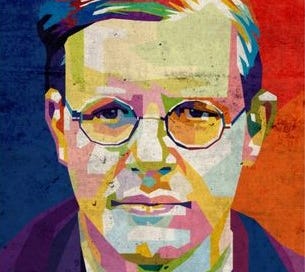Were Jesus and Bonhoeffer Pacifists?
Unpacking the Complex Legacy of a German Christian Martyr
Imagine this…
You are visiting Portland and one afternoon while exploring you find yourself standing on a footbridge, looking down over streetcar tracks. Suddenly you notice a runaway streetcar hurling out of control toward the bridge. Down the track there are five people; and the banks are too steep to climb to get off the track in time. You realize th…
Keep reading with a 7-day free trial
Subscribe to Deconstructionology with Jim Palmer to keep reading this post and get 7 days of free access to the full post archives.





